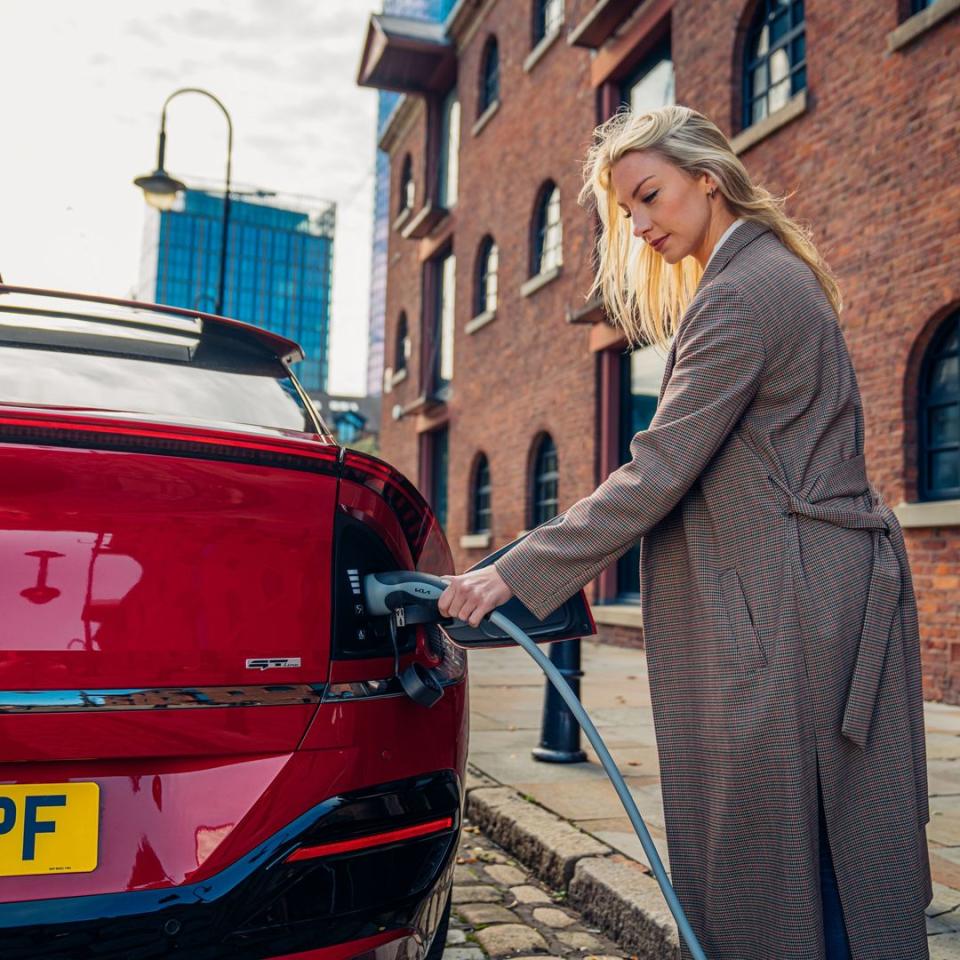6 things you need to know before buying your first electric car

Are you interested in switching to an electric car but hesitating about taking the plunge? Unless you're a maths whizz or tech-savvy, the prospect of getting your head around battery sizes, charging times and kWh can feel daunting. But this beginner's guide will explain the essential need-to-knows.
1. You could buy your first EV new or second-hand
If you're after a luxurious supercar and have a spare £95,000 knocking around then the Tesla Model S might tickle your fancy. However, most motorists will be checking out more affordable family cars such as the Kia Niro EV, which costs around £28,000. Then there's the Dacia Spring which will soon enter the market and is expected to cost under £20,000.

It's worth researching whether you're eligible for a salary sacrifice scheme. This can save you up to 60% on the car of your choice if it's bought through a business or as a company car. The Electric Car Scheme has more details.
The number of quality second-hand EVs coming onto the market is a game-changer for first-time EV buyers. Check the vehicle has been properly serviced and you can pick up a bargain for £10,000 or less.
MORE CAR CONTENT
10 of your top electric car questions answered 10 of your top electric car questions answered
The ultimate guide to car tax - from exemptions to how to pay The ultimate guide to car tax - from exemptions to how to pay
Electric cars vs hybrid and petrol – which car is right for you? Electric cars vs hybrid and petrol – which car is right for you?
2. Or maybe you'd prefer to lease or have a car subscription?
Leasing is an increasingly popular route for running both ICE and electric vehicles, and means you don't have to deal with either buying a vehicle or selling it – check out Drive Electric to see what's on offer.
Car subscriptions, where the cost of the car, insurance, maintenance and road tax are bundled into a monthly payment are a relatively new innovation. They're especially appealing to the EV-curious, as they give you the opportunity to see how an electric car will fit into your lifestyle without a long-term commitment.
3. It's a lot easier to run an EV if you can charge at home – but not impossible
If you have a driveway or private parking where you can get a home charge point installed, then that will make running your electric vehicle both convenient and cheap. EV charge point installers Smart Home Charge has a range of chargers to choose from and the cost of both charger and installation begins at around £900.

For motorists who live in flats and terraced houses, the Zap-Map app will help you track down local chargers, but they will be more expensive than home charging. One option worth considering is Community Charging, where charge point owners rent them out to their neighbours via an app such as Co Charger.
4. Charging off-peak on the right EV tariff can save you hundreds of pounds
If you're used to working out your travel costs by checking petrol prices and estimating how far you can go on a full tank, getting to grips with kWh and EV battery sizes can feel a bit confusing initially. But thankfully the number-crunching can be done online. Home EV charge point installers Smart Home Charge have developed a useful Cost to Charge an EV tool. You select your vehicle or one you're thinking of buying and you'll be offered the best-value tariffs and prices.
For example, if you ran a Kia Niro EV with a 68kWh battery on the average UK tariff of 28p per kWh, doing 10,000 miles a year, the annual cost would be £661. However with the Intelligent Octopus Go tariff and off-peak charging the cost is brought down to £177, a saving of up to £484. The tool is really useful for understanding EV costs in general – for example, it can also help you compare the price of public EV charging stations such as Tesla Superchargers, Gridserve, Osprey, Pod Point and many more. You can also see their Zap Map survey customer rating and price per kWh.
5. Range anxiety isn't something most drivers need to be anxious about anymore
Back in 2011 the first mass market EVs did have a limited range, hence the fears about 'range anxiety'. But in 2024 most mass-market EVs will have a battery range of around 150 miles or upwards, whilst the average distance travelled by private cars is 20 miles a day. So just top up your vehicle when convenient, just as you would your mobile phone. Ideally, you'll do this during off-peak times to make the most of the savings.

When you do longer journeys, motorway service stations are well-equipped with rapid chargers that can provide up to an extra 200 miles in 30 minutes.
6. Electric cars are great fun to drive
RELATED: I found out my driving anxiety was a surprising symptom of perimenopause
Car dealerships are keen to promote EVs so why not take a test drive and find out for yourself? Getting behind the wheel of a sporty Porsche Taycan, a popular family car such as the MG4 EV, or the cute and stylish Fiat 500e could be what inspires you to finally go electric!
Maria McCarthy is a motoring journalist and author of 'Driving Test Secrets You Need to Know'.






